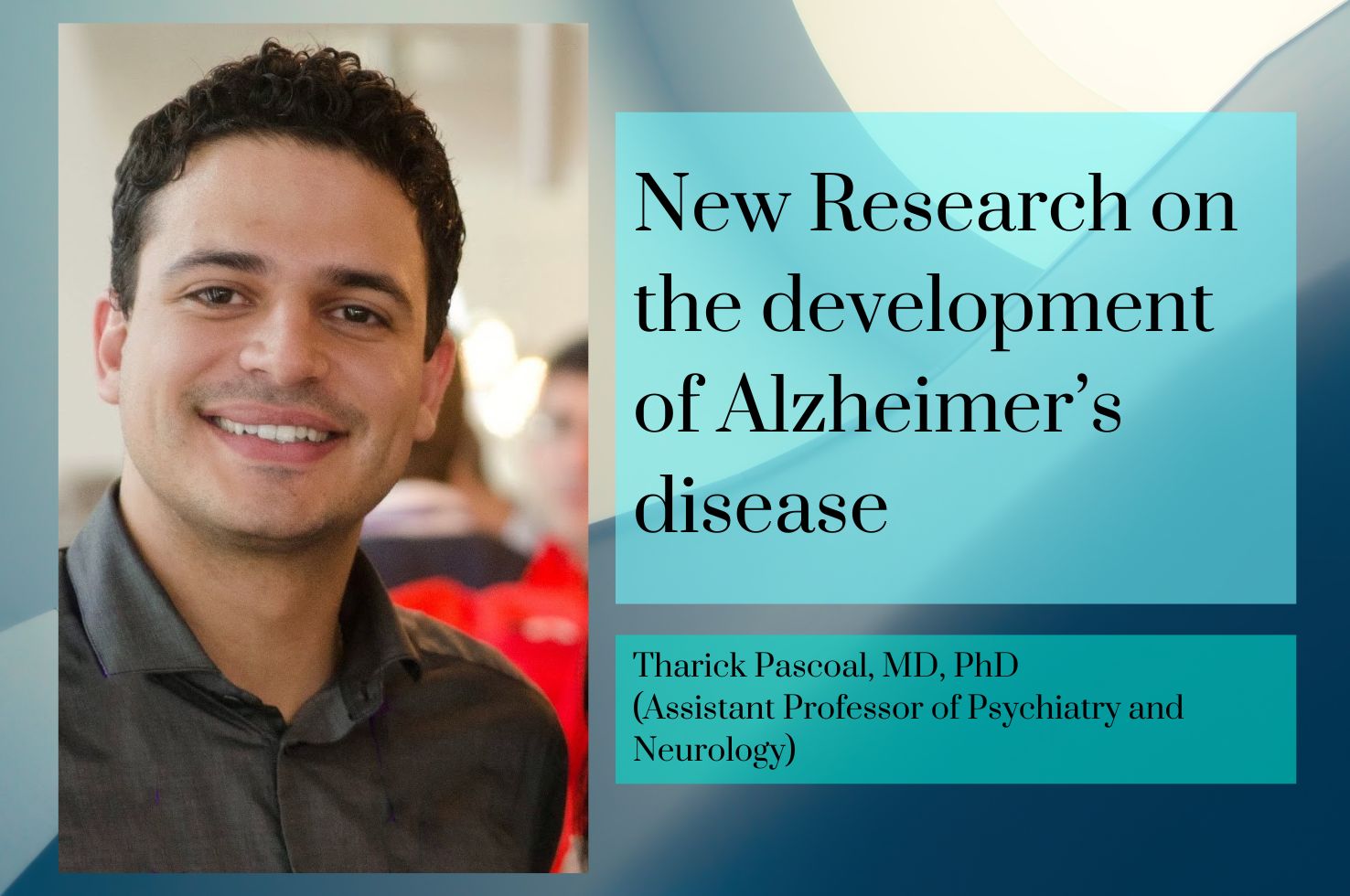Molecular Psychiatry: Astrocyte Biomarker Signatures of Amyloid-β and Tau Pathologies in Alzheimer’s Disease

In Alzheimer’s disease, reactive astrocytes can play an important role in the pathophysiology of the disease. Amyloid-β and tau tangles—the two main pathological hallmarks of Alzheimer’s disease—are associated with astrocyte reactivity. However, knowledge about amyloid-β- and tau-specific contributions to reactive astrocyte biomarkers in patients with Alzheimer’s disease is limited.
To improve our understanding of the complex link between reactive astrogliosis heterogeneity and Alzheimer’s disease progression, investigators including Tharick Pascoal, MD, PhD (Assistant Professor of Psychiatry and Neurology), and João Pedro Ferrari-Souza—a medical student from Brazil who completed a yearlong internship in Dr. Pascoal’s lab— Pamela Ferreira, PhD (postdoctoral associate), Bruna Bellaver, PhD (postdoctoral associate), Douglas Leffa, MD (PGY1 psychiatry resident), William Klunk, MD, PhD (Distinguished Professor of Psychiatry and Neurology and Levidow-Pittsburgh Foundation Chair in Alzheimer's Disease and Dementia Disorders), Dana Tudorascu, PhD (Associate Professor of Psychiatry and Biostatistics), Ann Cohen, PhD (Associate Professor of Psychiatry), Victor Villemagne, MD (Professor of Psychiatry), and Thomas Karikari, PhD (Assistant Professor of Psychiatry), from Pitt Psychiatry, studied the associations of two different biomarkers of astrocyte reactivity, glial fibrillary acidic protein (GFAP) and chitinase-3-like protein 1 (YKL-40), with brain amyloid-β and tau pathologies.
The investigators used positron emissions tomography (PET) imaging to assess for amyloid-β and tau, as well as GFAP and YKL-40 measures in cerebrospinal fluid samples from 121 individuals ages 50 or older. The cohort included 75 participants without cognitive impairment, 29 with mild cognitive impairment, and 17 with Alzheimer’s disease dementia.
The team observed that higher GFAP levels in cerebrospinal fluid samples were associated with amyloid-β pathology and higher CSF YKL-40 levels were associated with elevated tau pathology. They published the results of the study in Molecular Psychiatry.
“We have shown that inflammation due to astrocytes reactivity plays a key role in the development of Alzheimer’s disease,” said João Pedro Ferrari-Souza, the lead author of the study.
“We have recently shown the role of microglial activation in Alzheimer’s disease progression,” added Dr. Pascoal, the study’s corresponding author. “Now, we need well-powered longitudinal studies combining astrocyte and microglial reactivity biomarkers to clarify their unique contributions to the progression of the disease.”
Astrocyte biomarker signatures of amyloid-β and tau pathologies in Alzheimer’s disease
Ferrari-Souza JP, Ferreira PCL, Bellaver B, Tissot C, Wang YT, Leffa DT, Brum WS, Benedet AL, Ashton NJ, De Bastiani MA, Rocha A, Therriault J, Lussier FZ, Chamoun M, Servaes S, Bezgin G, Kang MS, Stevenson J, Rahmouni N, Pallen V, Poltronetti NM, Klunk WE, Tudorascu DL, Cohen AD, Villemagne VL, Gauthier S, Blennow K, Zetterberg H, Souza DO, Karikari TK, Zimmer ER, Rosa-Neto P, Pascoal TA.
Mol Psychiatry (2022). https://doi.org/10.1038/s41380-022-01716-2
